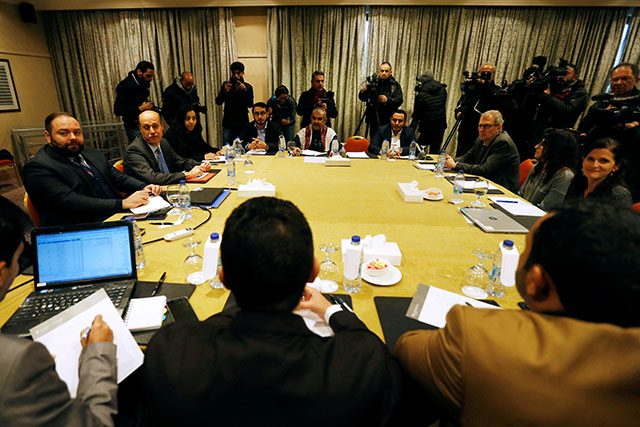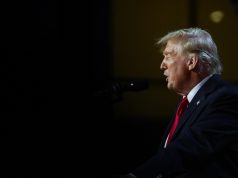
WASHINGTON — The chairman of the U.S. House Foreign Affairs Committee said on Wednesday he was troubled by a report that Saudi Arabia transferred weapons to extremist groups in Yemen and questioned whether Congress should consider more restrictions on weapons sales to the Saudi-led coalition.
Later on Wednesday, the committee voted 25 to 17, along party lines, in favor of a war powers resolution that would prevent the U.S. military from providing any support to the Saudis and other countries waging war on Iran-backed Houthi rebels in Yemen’s civil war.
CNN reported on Monday that Saudi Arabia and the United Arab Emirates, its main partner in the coalition, have transferred U.S.-made weapons to al Qaeda-linked fighters and other groups and that some of the weapons also made their way into the hands of Iranian-backed rebels, exposing sensitive technology to Iran.
“These reports are very troubling and the Trump administration must investigate further and work to prevent this from happening again,” Democratic Representative Eliot Engel, chairman of the House of Representatives Foreign Affairs Committee, said at a hearing.
“Should Congress pursue greater restrictions on offensive weapons to the Saudi coalition?” asked Engel, who as chairman has the right to review and put “holds” on major foreign weapons sales.
The State Department said it was investigating the allegations. “We are aware of these reports and seeking additional information,” a department official said, adding that all such reports are taken seriously.
Critical comments from Engel and other committee members were only the latest recent expressions of frustration with Saudi Arabia from U.S. lawmakers. Members of Congress have been angered by steep civilian casualties in Yemen, human rights abuses and the killing of Saudi journalist, Jamal Khashoggi, a U.S. resident, at a Saudi consulate in Turkey in October.
Late last year, lawmakers introduced various pieces of legislation seeking to put tighter controls on U.S. dealings with Riyadh, including clamping down on weapons sales, barring military cooperation with the Saudi-led coalition and calls for human rights sanctions.
President Donald Trump’s administration opposed many of the bills, calling the Saudis important regional partners and praising weapons sales as an important source of U.S. jobs.
None of those bills became law, but Engel said the committee would continue to press for a response to casualties in Yemen, Khashoggi’s killing and the imprisonment of women’s rights activities. “It can no longer be business as usual. We need to push for a real change in Saudi behavior,” he said.
Representative Michael McCaul, the panel’s top Republican, called Khashoggi’s murder “a major setback” in the U.S.-Saudi relationship and deplored civilian casualties in Yemen.
McCaul, however, opposed the war powers resolution seeking to bar U.S. military support for the Saudi-led coalition, saying it “could disrupt U.S. security cooperation with partners around the world.”
To go into effect, the war powers resolution must pass the full House of Representatives and the Senate, where Trump’s fellow Republicans hold a slim majority, and be signed into law by Trump.
If Trump declined to sign the resolution, the measure would have to garner the two-thirds majority support in both the House and Senate needed to overcome a presidential veto. —Reporting by Patricia Zengerle in Washington, additional reporting by Mike Stone; Editing by James Dalgleish and Susan Thomas









